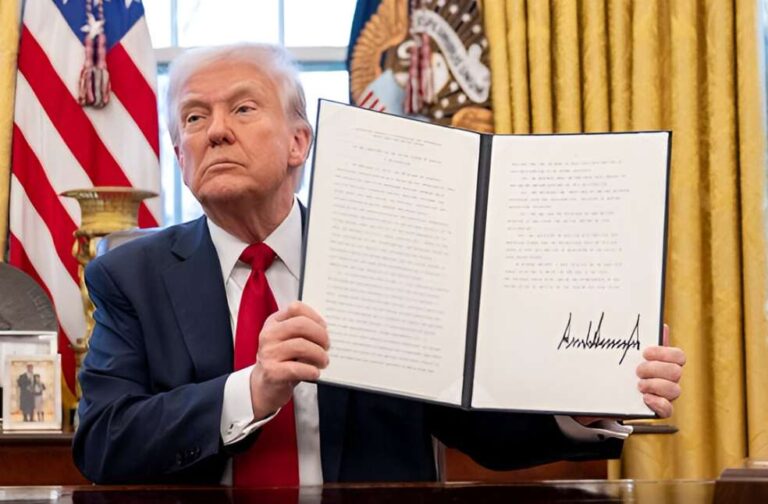Washington, D.C.: U.S. President Donald Trump has announced a new wave of import tariffs, imposing a 25 percent tax on foreign cars and car parts in a move that could escalate global trade disputes. The tariffs are set to take effect on April 2 for imported vehicles, with additional duties on parts expected in May or later.
Trump claims the measure will boost domestic car manufacturing and create jobs, saying it will lead to “tremendous growth” in the industry. However, analysts warn that the decision may disrupt supply chains, increase vehicle prices, and strain relationships with key trade partners.
The U.S. imports roughly eight million cars annually, valued at approximately $240 billion. Mexico, South Korea, Japan, Canada, and Germany are the top suppliers, and the new tariffs threaten to upend long-established automotive trade networks. While tariffs on parts from Canada and Mexico will be temporarily exempt as the U.S. establishes a system for duty assessment, businesses in other countries are bracing for the impact.
Japan, the world’s second-largest car exporter, has vowed to explore “all options” in response, according to Prime Minister Shigeru Ishiba. Meanwhile, European Commission President Ursula von der Leyen called tariffs “bad for businesses” and warned of potential retaliatory measures.
— The White House (@WhiteHouse) March 27, 2025
Following the announcement, shares of major automakers declined, with General Motors falling by 3 percent. Ford and Japanese manufacturers, including Toyota, Nissan, and Honda, also saw losses in early trading.
The move has drawn sharp criticism from international leaders and trade groups. Canadian Prime Minister Mark Carney condemned the tariffs as a “direct attack” on his country’s economy, while British officials are seeking a last-minute trade agreement to protect the UK’s auto sector from the fallout.
Despite industry pushback, the White House insists the tariffs are designed to encourage companies to migrate production to the U.S. The policy received rare bipartisan support from labour unions, with United Autoworkers leader Shawn Fain backing the move as a step toward rebuilding American manufacturing.
Meanwhile, South Korean auto giant Hyundai announced a $21 billion investment in U.S. operations just a day before the tariffs were confirmed, with Trump touting the decision as proof that “tariffs work.”
The U.S. International Trade Commission previously estimated that a 25 percent tariff could cut car imports by 75 percent while raising domestic prices by about 5 percent. However, with Trump signalling that the tariffs are “permanent,” global automakers may have little choice but to adapt or shift production to the U.S.



